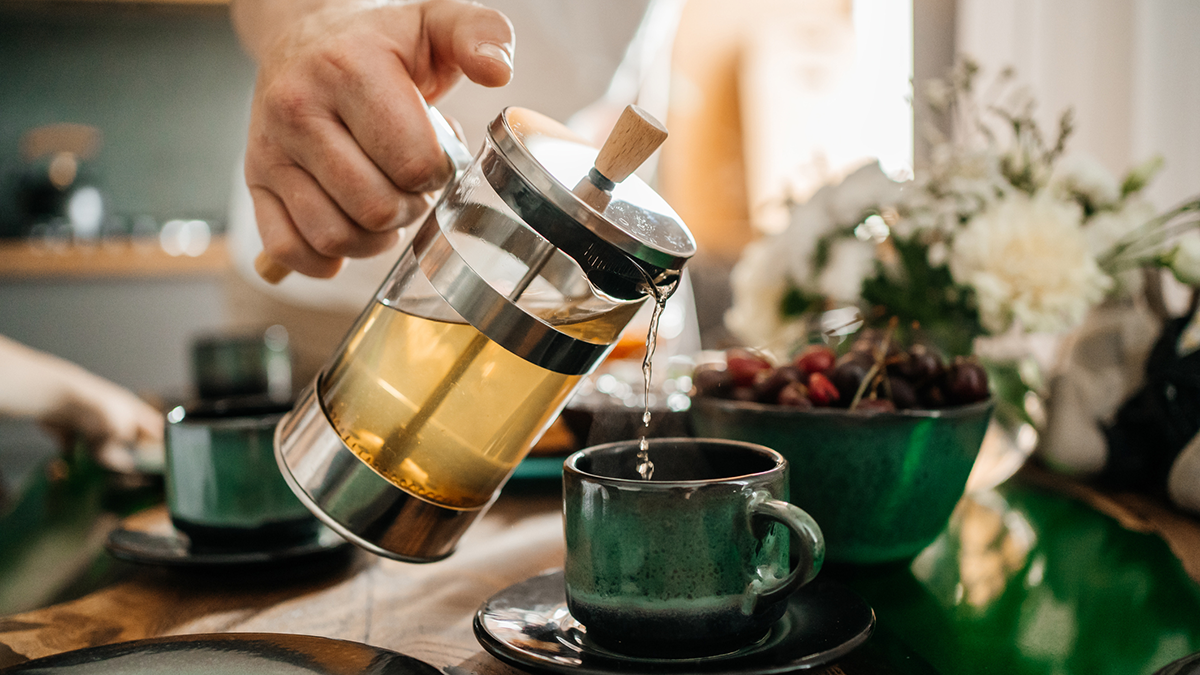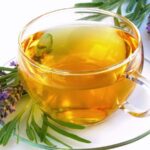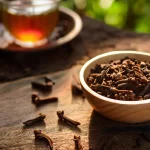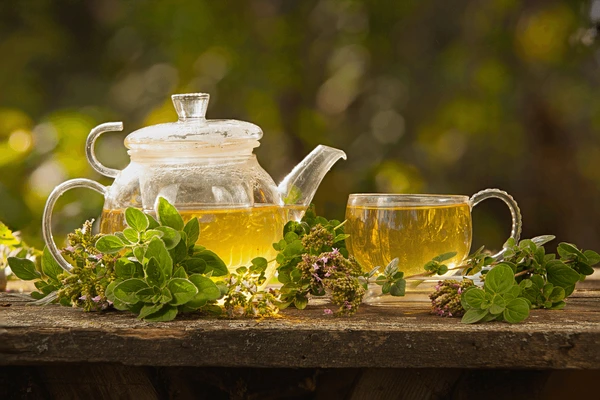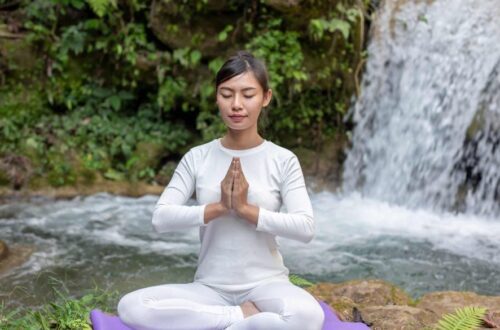Teas That Can Help You Sleep
What are the teas that can help you sleep? Falling asleep can be challenging, particularly after a demanding day or when you’re anticipating a stressful day ahead. Struggling with sleep not only leaves you feeling exhausted but can also contribute to various health issues such as weight gain, depression, stroke, and heart disease.
One effective and natural way to promote better sleep is by drinking tea. Tea has long been recognized as a gentle remedy for sleeplessness, helping you to relax and ease into a restful state.
For centuries, people have turned to soothing bedtime tea blends to reduce stress, unwind, and improve the quality of their sleep.
While these teas aren’t a quick fix or a sedative, they can play an important role in your nighttime routine, signaling to your body that it’s time to wind down and prepare for bed. Incorporating a calming tea into your evening ritual can be a simple yet powerful step towards achieving more restful and restorative sleep.
These are Teas That Can Help You Sleep
We explore some of the top teas for enhancing sleep, helping you achieve quicker and deeper rest.
Chamomile Tea
Chamomile tea is renowned for its anti-inflammatory properties and its ability to alleviate nervousness, stress, and digestive discomfort. It is also effective in reducing symptoms of insomnia and sleeplessness. The calming effects of chamomile tea can be attributed to an antioxidant called apigenin, which has been shown to relax the nerves and promote a peaceful sleep.
In a 2017 study, 60 nursing home residents were given 400 mg of chamomile extract daily. Those who consumed the extract experienced a significant improvement in sleep quality compared to those who did not take chamomile.
Another 2016 study highlighted that postpartum women who drank chamomile tea had better sleep compared to those who did not. However, it’s important to note that while chamomile tea is safe for postpartum women, it is advised that pregnant women avoid it due to its potential blood-thinning effects.
A study focusing on individuals with chronic insomnia involved one group taking chamomile extract twice daily for four weeks, while the other group received a placebo. Although there was no significant difference in sleep onset, quality, and duration, the group consuming chamomile extract showed noticeable improvements in daytime functioning.
While the benefits of chamomile tea are still being studied and may not be conclusive, various studies suggest it is a worthwhile option to consider for better sleep. Additionally, chamomile flowers are among the best plants for the bedroom, providing relaxation through their soothing aroma even if you choose not to drink the tea.
Lavender Tea
Lavender tea is not only celebrated for its delightful aroma but also for its effectiveness in promoting restful sleep. Historically, ancient Romans and Greeks used lavender in their baths to aid relaxation and calm their minds.
Lavender essential oil, particularly Silexan, has been shown to reduce anxiety, alleviate stress, and enhance sleep quality. A 2005 study demonstrated that even the mere act of sniffing lavender oil could increase the amount of sleep participants experienced.
Further research from 2012 revealed that women suffering from insomnia experienced improvements in their sleep patterns after inhaling lavender for 20 minutes twice a week over a 12-week period. Additionally, these women exhibited slower and more consistent heart rates following lavender aromatherapy.
Lavender may be particularly effective for women. In a 2015 study involving sleep-deprived postnatal women, those who drank a cup of lavender tea every night for two weeks reported reduced fatigue. This benefit diminished once they stopped consuming the tea.
Valerian Root Tea
Valerian root has a long history of use dating back to the second century for treating anxiety, headaches, and insomnia, and improving overall sleep quality. Available in various forms, including capsules and liquids, valerian root is renowned for its calming effects.
Although the exact mechanism of valerian root is not fully understood, it is believed to increase the levels of gamma-aminobutyric acid (GABA) in the brain. GABA receptors promote sleepiness and function similarly to certain anti-anxiety medications.
Numerous studies support valerian root tea as an effective sleep aid. It offers a natural alternative to sleep medications and supplements without the associated negative side effects. However, because valerian root may interact with certain medications, it’s wise to consult your doctor before incorporating it into your routine on a regular basis.
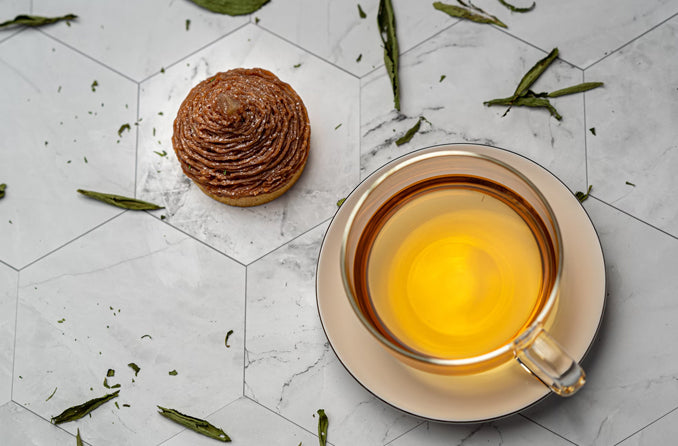
Passionflower Tea
Passionflower tea is made from the leaves, flowers, and stems of the Passiflora plant. This herbal tea is renowned for its calming effects, thanks to its ability to increase levels of gamma-aminobutyric acid (GABA) in the brain. GABA is a neurotransmitter that promotes relaxation, a positive mood, and better sleep quality. Passionflower tea can also help manage symptoms of generalized anxiety disorder, often with fewer side effects compared to conventional treatments.
A 2011 study involving healthy adults found that participants who drank one cup of passionflower tea daily for one week experienced a significant improvement in sleep quality compared to those in a control group.
Moreover, a 2013 study suggested that passionflower tea might be as effective at enhancing sleep quality as some prescription sedatives used for treating insomnia.
Lemon Balm Tea
Lemon balm tea, which comes from the lemon-scented leaves of a plant in the mint family, is known for its relaxing properties. Although lemon balm is often used in oil extract form, its dried leaves can also be steeped to create a soothing tea. Historically, lemon balm has been used since the Middle Ages to alleviate restlessness and encourage deeper sleep.
A 2011 medical study demonstrated that lemon balm increased GABA levels in mice, indicating a potential mild sedative effect. However, since this research was conducted on animals, its implications for human sleep are still being explored.
Another study on human participants showed that those who took 600 mg of lemon balm extract daily for two weeks experienced improved sleep quality. This suggests that lemon balm tea could be a beneficial addition to your bedtime routine for enhancing sleep.
Ashwagandha Tea
Ashwagandha, formally known as Withania somnifera, has been a cornerstone of Ayurvedic medicine for centuries, celebrated for its ability to promote relaxation and calm. Traditionally used as a sleep aid, its effectiveness is supported by contemporary research.
A 2020 double-blind study found that Ashwagandha root extract significantly enhanced sleep quality among 40 participants, with the most notable improvements observed in those suffering from insomnia.
Additionally, a 2022 study on Swiss albino mice explored how Ashwagandha extract influenced slow-wave sleep cycles, further supporting its sleep-promoting effects. However, a 2021 review highlighted that while the data supporting Ashwagandha’s sleep benefits is promising, there is limited information on potential serious adverse effects. More research is needed to fully assess its long-term safety.
Tulsi Tea
Tulsi tea, also known as Basil tea, is an herbal infusion made from the leaves of the Tulsi plant (Ocimum tenuiflorum). Like ashwagandha, tulsi has a long history in Ayurvedic medicine and is renowned for its wide range of health benefits.
Tulsi is classified as an adaptogen, which means it helps the body manage and respond to stress more effectively, much like ginseng. Chronic stress can significantly disrupt sleep, but tulsi tea may help mitigate this by regulating cortisol levels, a hormone linked to stress. The herb is also known for its anxiety-relieving properties, promoting a sense of calm and helping the body prepare for restful sleep.
A 2017 review suggested that tulsi has potential benefits for normalizing glucose levels, blood pressure, and lipid profiles, managing stress, and possibly preventing various health issues.
Furthermore, a 2022 study indicated that tulsi supplementation improved perceived stress and sleep quality in stressed adults, reducing their stress response and highlighting its potential as a natural remedy for stress and sleep disturbances.
Ginger Tea
Ginger root has long been valued for its natural ability to ease various ailments, though further research is needed to fully explore its health benefits. Nonetheless, ginger tea provides a soothing effect that makes it an excellent choice for winding down before bed. As you sip this warm beverage, the natural compounds in ginger work to alleviate tension and restlessness that might otherwise keep you awake.
In addition to its calming properties, ginger tea is well-regarded for its ability to alleviate indigestion, nausea, and stomach discomfort. An upset stomach can often disrupt sleep, causing restless nights or uncomfortable awakenings. Drinking ginger tea before bed can help settle your stomach, promoting a more restful and uninterrupted sleep.
Moreover, ginger’s natural anti-inflammatory properties help reduce swelling and irritation, making it easier to find a comfortable sleeping position. Whether you prefer sleeping on your back, side, or stomach, ginger tea can provide relief and support a good night’s rest.
Some ginger tea blends also include lemongrass, which has been shown to lower blood pressure and might assist in managing hypertension, adding another layer of benefit to your bedtime routine.
Mint Tea
The term “mint tea” encompasses a variety of options, with peppermint and spearmint being the most common. Peppermint tea is known for its invigorating and refreshing aroma, and it has been shown to have notable effects on sleep quality. A 2020 study revealed that peppermint essential oil could significantly improve sleep for cancer patients, with similar results observed with lavender aromatherapy.
Peppermint contains menthol, a compound that acts as a natural muscle relaxant, potentially easing tension and contributing to a more relaxed state. Additionally, peppermint tea is often used to address digestive issues, further supporting a peaceful night’s sleep.
A 2021 study highlighted that a blend of white tea and peppermint may offer significant antibacterial and anti-inflammatory benefits. However, since white tea contains caffeine, it may not be ideal for bedtime.
Spearmint tea, with its milder and slightly sweeter flavor compared to peppermint tea, offers a gentler alternative. While the effects of spearmint on sleep and other health conditions are less studied than those of peppermint, it may be worth trying if peppermint tea feels too intense for your taste.
Should I Drink Iced Tea or Hot Tea?
For optimal sleep quality, it’s best to avoid both iced and very hot tea before bedtime. Instead, aim for tea that is mildly warm or at room temperature. Warm tea can provide a calming effect that helps you relax as you prepare for sleep.
The gentle warmth can be soothing and comforting, especially if you enjoy a relaxing bedtime routine, like an at-home spa session. Additionally, a warm cup of tea can help ease any tension or stress, aiding in a smoother transition to sleep.
Drinking hot tea right before bed may not be ideal, as the high temperature can elevate your body temperature and make it more challenging to fall asleep quickly. Hot tea can also lead to more frequent trips to the bathroom during the night, disrupting your sleep cycle.
On the other hand, cold tea, such as that pulled from a mini fridge, might not be conducive to relaxation. Cold beverages can stimulate the body, making it harder to unwind and fall asleep. Furthermore, cold tea has a diuretic effect, potentially increasing urination and causing you to wake up during the night.
For the best results, choose herbal teas that are naturally caffeine-free, like chamomile or lavender, which are renowned for their soothing and sleep-promoting properties.
Can I Customize My Own Tea Blend?
Absolutely! If store-bought sleep teas don’t appeal to you, creating your own custom tea blend is a fantastic option. Many online retailers offer the opportunity to build and order your own blend, or you can gather ingredients and create your blend at home.
Start with a base of calming herbs such as lavender or chamomile, using generous portions to highlight their fragrant flavors. Then, add smaller amounts of other herbs like ginger, lemon balm, or passionflower to balance their potency with the base herbs. For additional relaxation, consider incorporating spearmint, peppermint, ashwagandha, or valerian root—just a small amount of these can make a significant difference.
To enhance the aroma and taste, you might include warming spices like cinnamon or nutmeg. These spices not only add a comforting flavor but also contribute to a cozy and calming atmosphere. Use them sparingly, as their flavors can be quite strong.
Once your blend is prepared, store it in an airtight container away from direct sunlight to preserve its flavors and aromas. Label the container with the date of creation. If you prefer convenience, you can also purchase empty tea bags to make your own tea bags from the loose leaf blend.
When ready to prepare your sleep-inducing tea, use about one teaspoon of the blend per cup of hot water and steep for 5-7 minutes. Take this time to inhale the soothing aroma, which can further enhance relaxation. If you desire a touch of natural sweetness, a dollop of honey or maple syrup can be a lovely addition.
Customizing your own sleep tea blend is a creative and enjoyable process that allows you to tailor the tea to your preferences while promoting relaxation and tranquility. Embrace the experience, experiment with different combinations, and savor the delightful journey of crafting your perfect bedtime tea. Sweet dreams await!
FAQs
When should you drink nighttime tea?
For optimal benefits, it’s recommended to consume sleep-inducing teas, such as herbal blends, at least 2 to 3 hours before bedtime. This allows your body adequate time to digest the tea and experience its calming effects. While you can continue sipping tea up until you go to sleep, be mindful not to drink too much, as it might lead to frequent nighttime bathroom visits that could disrupt your sleep.
Is drinking too much herbal tea bad for you?
Generally, consuming 3 to 4 cups of herbal tea daily is safe for most people and unlikely to cause adverse effects. Unlike caffeinated teas, herbal teas used for sleep are less likely to cause negative side effects.
However, excessive tea consumption can sometimes lead to issues such as anxiety, headaches, or digestive problems. Additionally, some herbal teas can interact with prescription medications, so it’s wise to consult your doctor before making herbal tea a regular part of your diet. Monitor your intake and stop if you notice any negative effects.
Can I drink decaf tea for sleep?
Decaf tea is a better option than caffeinated varieties but still contains trace amounts of caffeine. If you are highly sensitive to caffeine or aiming to avoid it completely, consider sticking with herbal teas. Decaf tea does offer calming compounds, such as flavonoids and amino acids, which can help relax your mind and body. For best results, drink decaf tea at least an hour before bedtime.
Can I do anything with old tea bags?
Absolutely! Old tea bags can be repurposed in several creative ways. They can freshen up your home by absorbing odors in drawers, closets, or shoes. Used tea bags can also be added to homemade potpourri or sachets for a pleasant aroma.
For beauty and self-care, place cooled tea bags on your eyes to reduce puffiness or use them as a natural face toner. You can even add them to your bath for a soothing soak.
Are there any teas for sleep I should avoid if I’m pregnant?
Pregnant individuals should exercise caution and avoid certain herbal teas. While many herbal teas are generally considered safe, some herbs might pose risks or lack sufficient research on their effects during pregnancy. Consult your doctor before consuming new herbal teas. Generally, it’s advised to avoid valerian root, licorice root, and herbal laxatives while pregnant.
Does milk help you sleep better?
Milk contains L-tryptophan and melatonin, compounds linked to improved sleep. Tryptophan, an amino acid in protein-rich foods, helps produce serotonin, which regulates mood and sleep-wake cycles.
Melatonin, the sleep hormone, helps manage your circadian rhythm. Drinking warm milk before bed can also have a comforting, placebo effect, especially if you have fond childhood memories of warm milk at bedtime. For a similar benefit, you might also try a protein shake before sleep.
What is the most effective natural sleep aid?
If tea isn’t your preferred method, you can consider supplements like chamomile, valerian root, or lavender in capsule form. Other sleep aids include tryptophan, hops, or magnesium supplements. Enhancing sleep hygiene through relaxation methods—such as reading a good book, taking a warm bath, and minimizing screen time—can also significantly improve sleep quality.
What is the best food to eat at night?
Certain foods can help promote relaxation and better sleep. Options include:
- Almonds
- Walnuts
- Turkey
- Salmon
- Kiwis
- Bananas
- Tart cherry juice
- White rice
- Oatmeal
- Whole-grain crackers
- Greek yogurt
Avoid spicy, salty, or fatty foods before bed as they can lead to indigestion, acid reflux, and heartburn, making it harder to fall asleep.
Conclusion
The most effective bedtime teas include chamomile, lavender, and valerian root. However, you may also enjoy fruit teas, berry blends, or root vegetable-based teas like carrot or sweet potato. Avoid caffeinated teas, even if they are low in caffeine. While tea alone may not guarantee perfect sleep, it can promote relaxation and help you unwind. Combine your tea-drinking routine with good sleep hygiene practices for the best long-term results.
Disclaimer:
The information provided in this guide is for general informational purposes only and is not intended as medical advice. While herbal teas and remedies are widely used for their potential calming and sleep-promoting effects, individual responses may vary. Always consult with a healthcare professional before starting any new herbal regimen, especially if you have underlying health conditions, are pregnant, or are taking prescription medications. This guide does not substitute for professional medical advice, diagnosis, or treatment. The effectiveness of these teas for sleep and other health benefits is based on current research and personal experiences, and results may differ from person to person.
How To Lose Weight Without Counting Calories
Yoga Exercises For Weight Loss
What are the pros and cons of a vegan diet?
How Do You Feel When Your Sugar Is Low?
Benefits of Cloves to The Vagina

A graduate of Computer Science and Information Management Technology. Diploma – Caregiving, Certificates – Dementia and Diabetes Awareness and Management. A researcher, blogger, songwriter, singer and acoustic guitarist. Born in an environment where natural talents such as healing are imparted at our natural birth. This natural talents of healing is the result of our genetic inheritance and the training from family environment.

